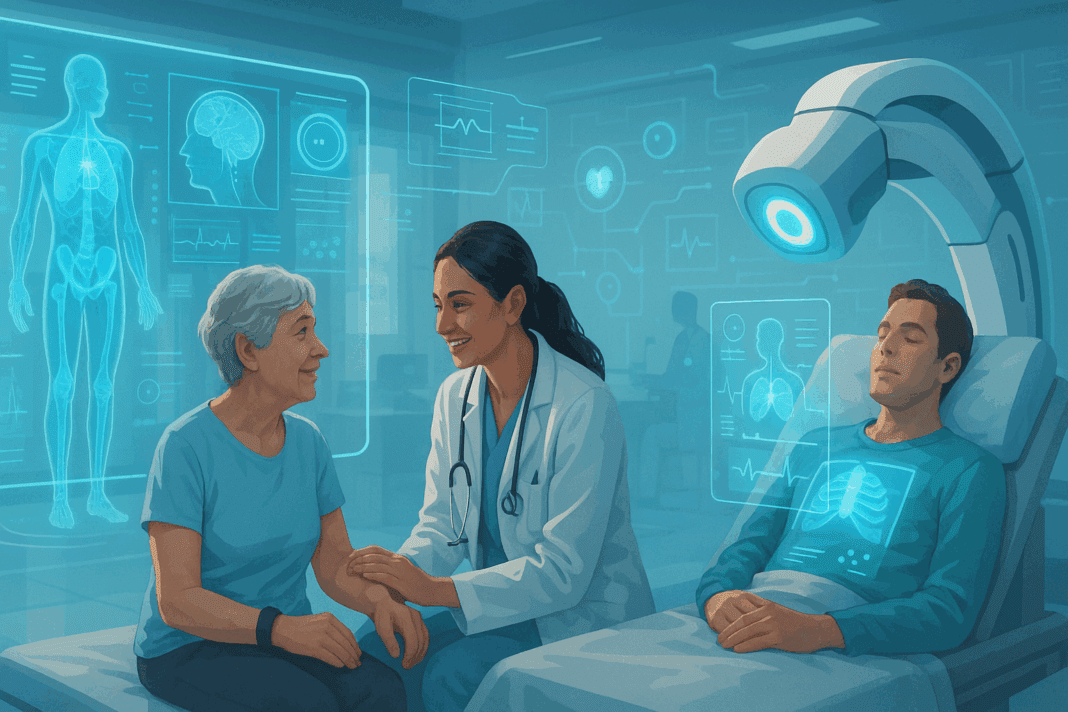In the rapidly evolving world of medical science, artificial intelligence (AI) has emerged as one of the most powerful agents of change. Its reach extends far beyond academic theory or laboratory experiments, finding its way into hospitals, clinics, research labs, and even patients’ homes. As AI continues its integration into every corner of healthcare, its influence is not only reshaping the systems that manage disease and diagnosis but also the very fabric of personal health decisions and experiences. In fact, we are witnessing an era where AI is changing individuals—transforming how they understand their health, interact with healthcare providers, and manage their well-being on a daily basis.
You may also like: Revolutionizing Healthcare: How AI in Medicine Is Enhancing Diagnosis, Treatment, and Patient Outcomes
Understanding the Foundation: What AI Has the Biggest Impact on Humankind in Healthcare?
Artificial intelligence in healthcare is not a monolithic concept. Rather, it encompasses a diverse ecosystem of machine learning algorithms, neural networks, natural language processing models, and data-driven diagnostics. From this rich tapestry, it becomes clear that the answer to what AI has the biggest impact on humankind lies in its ability to personalize care, accelerate discovery, and bridge accessibility gaps.
One of the most transformative contributions of AI is its role in medical imaging and diagnostics. Technologies like deep learning models can now analyze radiological images with a level of speed and accuracy comparable to expert radiologists. This has not only improved the rate of early detection of diseases like cancer but has also democratized diagnostic capabilities across regions with limited access to specialized care.
Another domain where AI has revolutionized healthcare is drug development. Traditional pharmaceutical research can span decades and cost billions. AI, however, compresses timelines by predicting molecular behaviors, identifying potential drug candidates, and even forecasting patient responses based on genetic profiles. This leap in capability significantly contributes to improved outcomes and reduced side effects.
Moreover, AI-driven health monitoring through wearable technology and smartphone integrations has made daily wellness a data-informed endeavor. These tools provide real-time feedback and empower individuals to engage in proactive health behavior. From tracking heart rhythms to alerting individuals of potential abnormalities, these systems epitomize how AI is changing individuals on a deeply personal level.
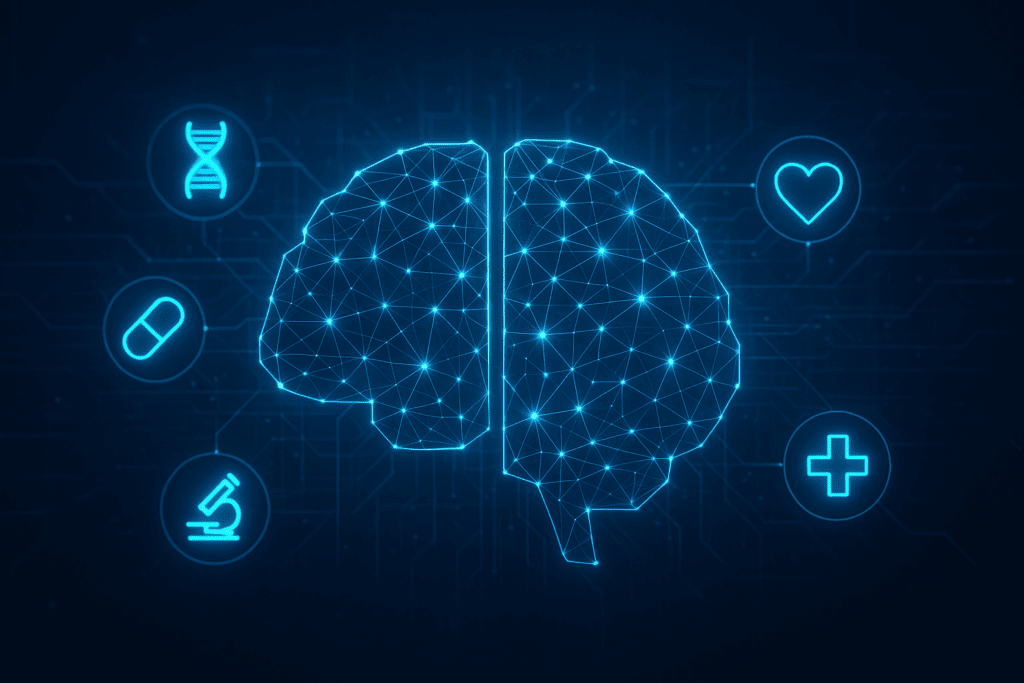
AI Changing Individuals Through Preventive Care and Personalized Medicine
One of the most significant shifts AI has introduced is a pivot from reactive to preventive care. Traditional healthcare systems, historically focused on treating illness after it manifests, are now transitioning into proactive guardians of health, largely due to AI’s predictive power. By analyzing vast datasets that include everything from lifestyle choices to genetic predispositions, AI models can forecast potential health risks and recommend preemptive measures.
This proactive model is particularly evident in the field of personalized medicine. AI systems are now capable of tailoring treatment protocols based on a person’s unique genetic makeup, environment, and even microbiome. For instance, cancer treatment plans that once followed a one-size-fits-all model can now be customized to an individual’s genetic mutation profile, vastly improving efficacy and reducing side effects.
Wearable technology and mobile health apps further support personalized preventive care. These tools track metrics like blood pressure, sleep patterns, and glucose levels, alerting users and providers to concerning trends before they escalate into chronic conditions. AI-enhanced platforms interpret this data in real time, guiding users with actionable insights.
Beyond the physiological, AI is also making strides in mental health. Emotion AI and sentiment analysis tools can monitor text or speech patterns for signs of depression or anxiety. By integrating these insights into daily use apps, individuals gain access to early mental health interventions, often long before a crisis point is reached. This fusion of AI and behavioral science is a testament to the nuanced ways in which AI is changing individuals at every level.
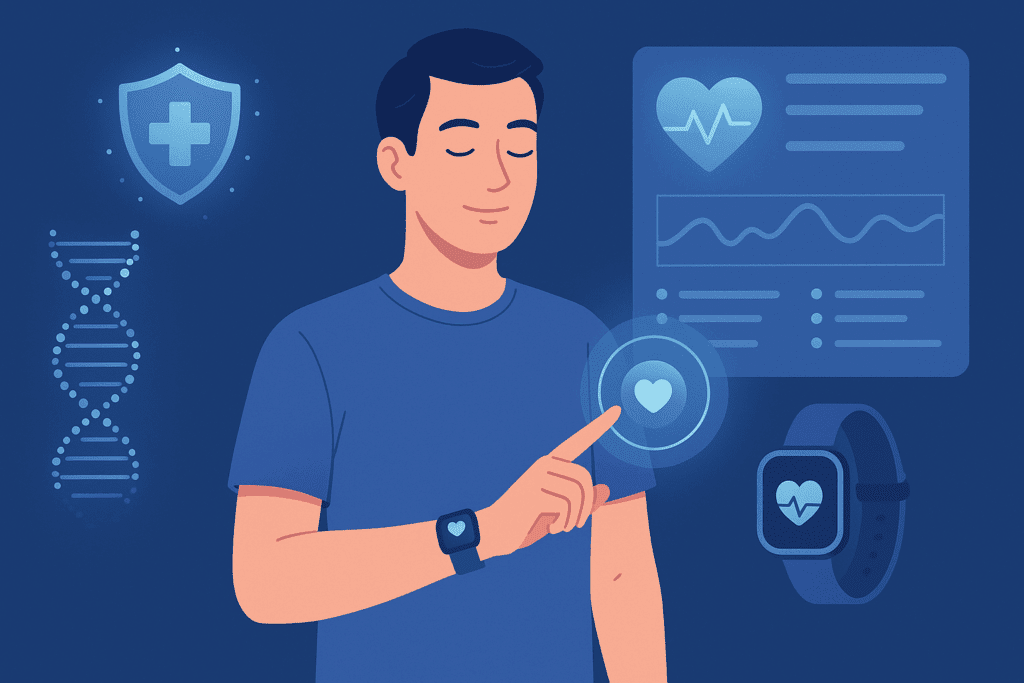
The Role of AI in Clinical Decision-Making and Physician Support
While the patient-facing side of AI garners much attention, its impact behind the scenes in clinical environments is equally profound. AI systems now assist clinicians by synthesizing patient histories, laboratory data, imaging, and research literature to offer diagnostic support. This not only augments a physician’s decision-making capacity but also helps reduce cognitive overload and diagnostic errors.
Clinical decision support systems (CDSS), empowered by machine learning, are now embedded in electronic health records. These systems flag drug interactions, recommend diagnostic pathways, and suggest evidence-based treatment options. In doing so, they act as a second set of eyes—an ever-vigilant partner that supports physicians in complex medical scenarios.
Furthermore, AI facilitates continuous medical education by keeping healthcare professionals abreast of the latest clinical guidelines and studies. Rather than sifting through thousands of papers, doctors can receive summarized, AI-curated insights tailored to their specialty and patient demographics.
This synergy between human expertise and artificial intelligence is not a replacement model, but a collaboration. Physicians bring experience, empathy, and ethical judgment, while AI brings computational efficiency, pattern recognition, and real-time data synthesis. This partnership elevates patient care standards and redefines the clinical workflow.
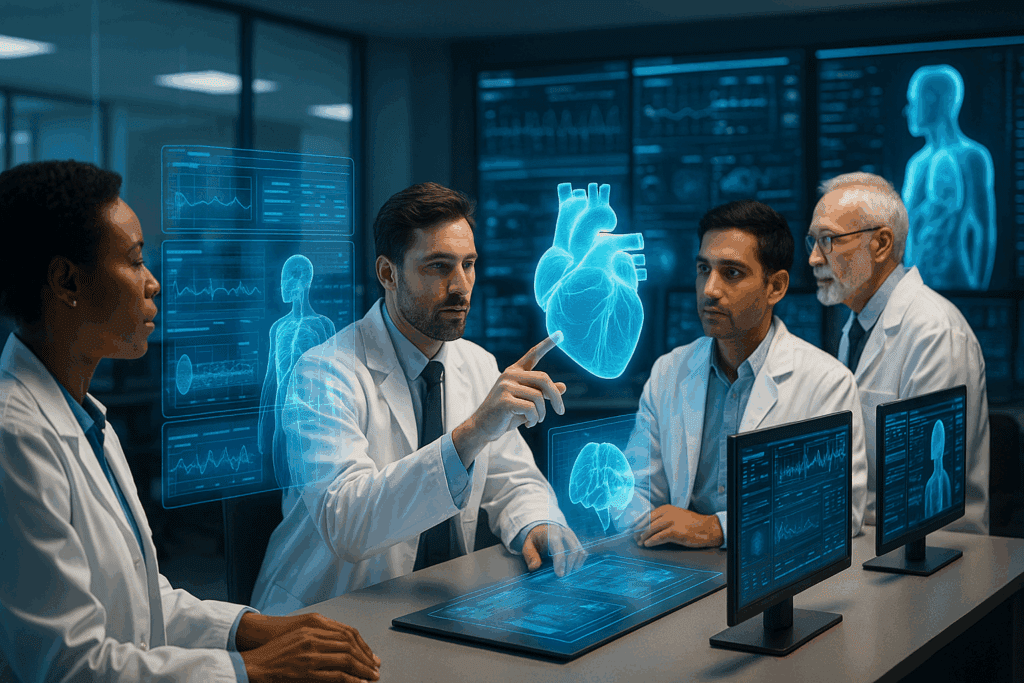
How Does AI Affect Our Daily Lives Through Consumer Health Tech?
Perhaps one of the most visible manifestations of AI’s healthcare revolution is in the devices and applications people use every day. Fitness trackers, smartwatches, virtual health assistants, and AI-enabled nutrition coaches are increasingly shaping daily routines. These technologies leverage AI to provide tailored health advice, track goals, and even detect emergencies.
Virtual health assistants, for instance, can respond to voice commands, schedule doctor appointments, remind users to take medications, and answer health-related questions. These assistants are not just convenient; they enhance medication adherence and empower patients to manage chronic conditions more effectively.
In the realm of nutrition and fitness, AI helps individuals choose healthier meals by analyzing dietary habits, allergies, and nutrient requirements. Apps can scan barcodes, suggest recipes, and build meal plans—all in real time—while learning user preferences through continuous feedback.
Sleep technology is another area where AI has a tangible impact. Advanced sleep monitors use machine learning to evaluate sleep stages, detect disruptions, and suggest improvements. For those with sleep apnea or insomnia, AI-guided interventions offer non-invasive solutions that were previously unavailable without clinical supervision.
By embedding itself into such daily functions, AI is doing more than improving convenience—it’s transforming behavior. As these tools become more intuitive and predictive, they subtly reshape decision-making processes, nudging individuals toward healthier habits and heightened self-awareness.

Public Health Innovations and AI Changing Individuals at Scale
Beyond the individual level, AI is a transformative force in public health. Surveillance systems that monitor disease outbreaks, analyze air quality, and track vaccination coverage all benefit from AI-driven insights. These systems operate at a scale that no human team could replicate, offering early warnings and strategic recommendations.
AI’s role in managing pandemics provides a compelling case study. During the COVID-19 crisis, AI models predicted virus spread, identified high-risk populations, and even helped design and optimize testing protocols. These applications did not merely serve institutions; they empowered individuals to make informed decisions about mobility, social distancing, and healthcare access.
In developing nations, AI helps bridge gaps in healthcare delivery. Chatbots offer medical triage in local languages, while AI-powered diagnostic tools provide basic imaging analysis where radiologists are scarce. This democratization of healthcare enhances equity and brings advanced care to underserved populations.
Community health programs also benefit from AI. Predictive analytics identify at-risk groups and help design interventions that resonate with cultural and regional contexts. These programs rely on AI not only for insights but also for engagement—text-based health nudges and reminders have shown significant effectiveness in driving public participation.
Through these systemic changes, we see yet again how AI is changing individuals—not in isolation, but as part of a larger, interconnected network of health-related influences. The ripple effect of AI’s intelligence at scale transforms not only outcomes but the very relationship communities have with health systems.
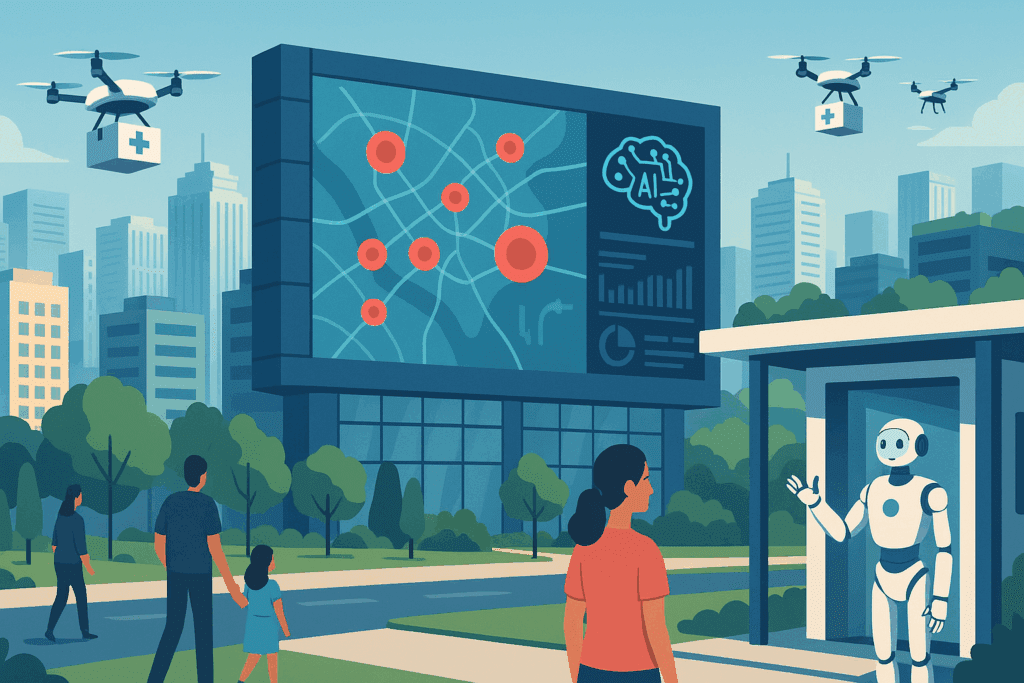
Ethical Frontiers: Balancing Innovation with Responsibility
As AI becomes more integrated into healthcare, ethical considerations must take center stage. Questions about data privacy, algorithmic bias, transparency, and consent have real implications for both individuals and institutions. If AI is to be a trusted partner in health, it must operate within a framework that prioritizes safety, fairness, and accountability.
One of the most pressing concerns is bias in AI algorithms. These biases, often inherited from historical data, can lead to disparities in diagnosis or treatment recommendations. For example, an AI system trained predominantly on data from one demographic may underperform when applied to diverse populations. Correcting these issues requires rigorous testing, inclusive data sets, and continual oversight.
Another ethical dimension is informed consent. As AI interfaces become more complex, individuals must understand how their data is used, stored, and interpreted. Transparent communication, along with user education, is essential to maintaining trust and autonomy.
Additionally, there is the question of accountability. When an AI system makes a recommendation that leads to harm, who is responsible—the developer, the institution, or the clinician who relied on the system? Resolving such dilemmas requires multidisciplinary collaboration between ethicists, clinicians, engineers, and policymakers.
Ultimately, ethical stewardship is not a limitation but a prerequisite for meaningful innovation. Ensuring that AI technologies align with human values will determine the sustainability and impact of these systems in the long run.
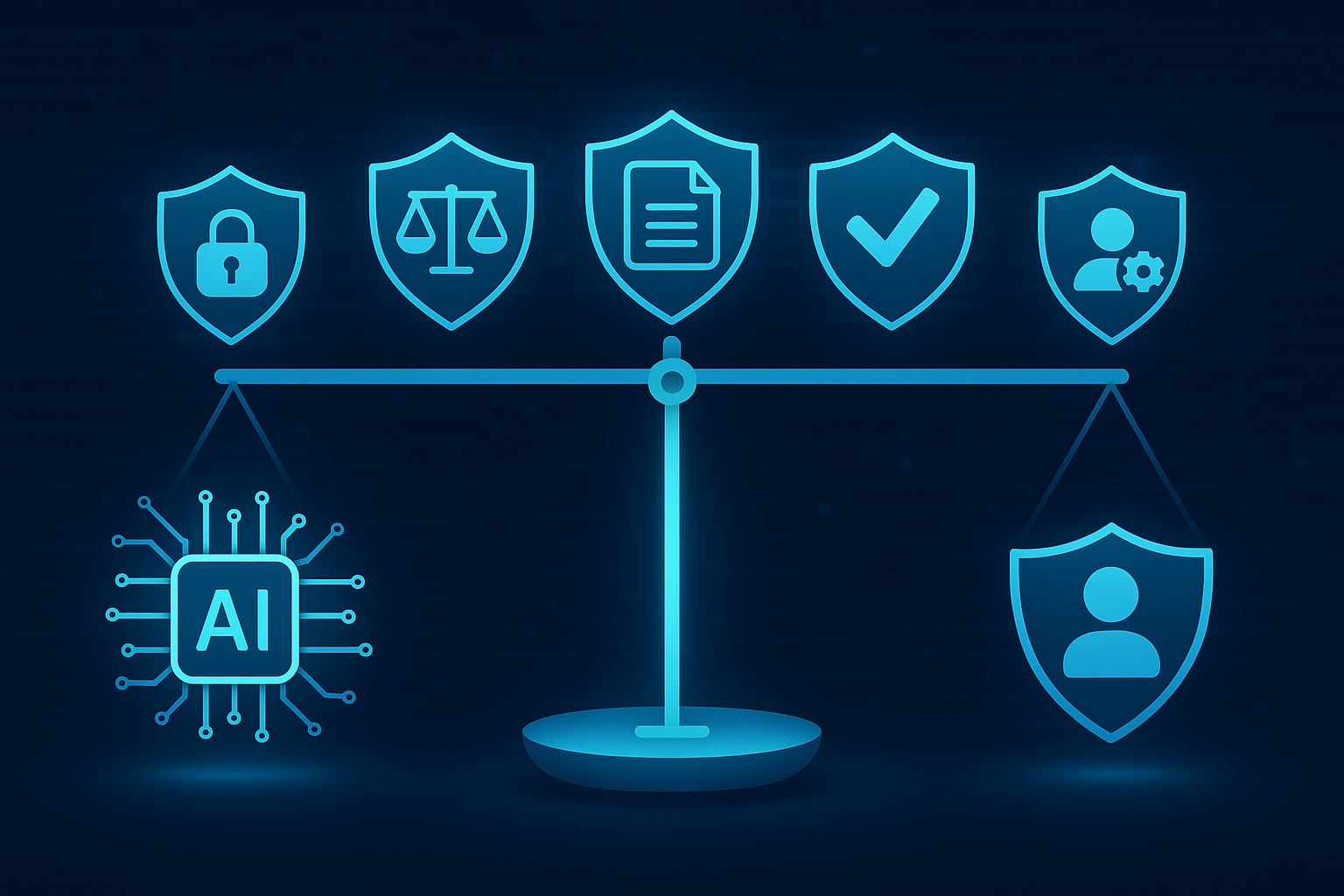
AI Changing Individuals Through the Lens of Medical Research Discoveries
In medical research, AI is unlocking possibilities that were once the domain of science fiction. By analyzing complex biological systems, predicting treatment responses, and even generating hypotheses, AI accelerates the path from discovery to clinical implementation. In this process, the question of how AI is changing individuals takes on a nuanced dimension.
Consider the field of genomics. AI-driven analysis of genomic data allows researchers to identify mutations, assess hereditary risks, and design gene therapies. This data not only informs public health strategies but also empowers individuals with knowledge about their genetic health risks, guiding lifestyle choices and medical decisions.
In neurology, AI models are being trained to detect patterns associated with neurodegenerative diseases like Alzheimer’s years before symptoms emerge. Early detection enables patients and their families to plan proactively, engage in preventive therapies, and maintain quality of life.
Clinical trials have also seen major improvements thanks to AI. Patient recruitment, historically a slow and inefficient process, is now expedited by AI matching algorithms that align patient profiles with trial eligibility criteria. This not only speeds up research but gives patients quicker access to potentially life-saving treatments.
Importantly, AI does not merely analyze data; it also helps generate it. Through synthetic data creation and virtual simulations, researchers can test hypotheses without relying solely on traditional patient cohorts. This expands the scope of experimentation and opens new avenues for discovery.
By facilitating such advancements, AI reshapes what it means to participate in and benefit from medical research. Patients are no longer passive subjects—they become informed collaborators in a shared journey of discovery and innovation.
Rethinking Human Potential: What AI Has the Biggest Impact on Humankind Going Forward
Looking ahead, the question of what AI has the biggest impact on humankind invites a philosophical reflection as much as a technical one. The greatest promise of AI may lie not in the replacement of human capabilities but in their amplification. By enhancing our cognitive, emotional, and physical capacities, AI enables individuals to lead healthier, more informed, and more empowered lives.
One of the most exciting frontiers is brain-computer interfaces (BCIs), which connect neural activity directly to external devices. These systems offer immense potential for individuals with disabilities, allowing them to communicate, control prosthetics, and even experience sensory inputs that were once out of reach. While still in early stages, BCIs represent a profound shift in the interface between biology and technology.
Another horizon is personalized behavioral coaching, where AI acts as a life coach, health advisor, and emotional support system all in one. By understanding context, mood, and behavior patterns, these AI systems adapt to individual needs and aspirations, offering guidance that evolves in real time.
Moreover, as AI systems become more empathetic and emotionally intelligent, their ability to support mental health and well-being will expand dramatically. Companion robots, therapeutic chatbots, and adaptive learning platforms will not just support but uplift individuals in profound ways.
These innovations signal a broader reimagining of human potential—one where health is not just the absence of disease but the flourishing of the whole person. In this reimagining, AI is not a cold machine but a dynamic partner in the pursuit of vitality, meaning, and fulfillment.
Frequently Asked Questions (FAQ): AI and Its Impact on Modern Healthcare
How is AI reshaping the emotional experience of healthcare patients?
Artificial intelligence is not only transforming diagnostics and treatments but also redefining the emotional landscape of healthcare. AI-powered chatbots and digital companions provide 24/7 interaction, easing feelings of isolation or anxiety among patients—especially those with chronic illnesses. These tools can offer affirming messages, contextual explanations of medical data, and even personalized mental health support. The psychological comfort gained from constant, empathetic feedback is a subtle yet powerful force in patient recovery and mental well-being. While not a substitute for human connection, these innovations represent a compassionate extension of care through technology.
What are some niche ways AI is supporting rare disease research?
AI plays a critical role in advancing research on rare diseases by identifying patterns that would be difficult for human researchers to spot due to limited data sets. Deep learning algorithms trained on sparse but high-quality data can find genetic markers and phenotypic patterns that point toward diagnostic or treatment pathways. This accelerates hypothesis generation in a field that often suffers from underfunding and slow case accumulation. Importantly, AI bridges international databases, linking case studies and anonymized patient histories across borders to increase visibility for rare conditions. This global network of data empowers specialists to reach faster and more accurate conclusions, ultimately changing lives.
AI Changing Individuals: How Does AI Influence Health Literacy and Decision-Making?
One of the less-discussed ways AI is changing individuals is by increasing their health literacy in nuanced, accessible ways. Virtual assistants and intelligent apps now explain complex medical terms in layperson language, enabling more informed consent and autonomy in decision-making. Users can interact with these tools at their own pace, revisit explanations, and receive context-specific guidance. This ease of access to personalized health information fosters not just understanding but engagement—patients become partners in their own care. Over time, this can shift societal expectations around medical transparency and shared decision-making.
How does AI enable better continuity of care across healthcare systems?
AI plays a pivotal role in ensuring continuity of care, especially for patients who see multiple specialists or transition between care settings. Through centralized data management systems and predictive analytics, AI helps consolidate patient information into comprehensive profiles. This minimizes duplication of tests, reduces medication errors, and provides a consistent narrative for each patient’s health journey. Furthermore, AI-enhanced scheduling tools and remote monitoring platforms ensure that follow-ups happen on time and that patients don’t fall through the cracks. The result is a more synchronized, patient-centric healthcare experience.
In what ways is AI being used to anticipate mental health crises?
AI is beginning to make headway in detecting early signals of mental health deterioration using a variety of data points, including speech tone, facial expressions, and usage patterns on digital platforms. These predictive tools are especially useful for identifying changes in behavior that might precede depression, anxiety, or even suicidal ideation. Schools, workplaces, and healthcare providers are beginning to pilot these tools as early intervention measures. When used ethically and with proper consent, AI allows for real-time, non-invasive monitoring that leads to timely outreach and support. This emerging frontier could revolutionize public mental health strategy.
What AI Has the Biggest Impact on Humankind in Post-Surgical Recovery?
In the domain of post-surgical recovery, some of the most impactful AI applications include robotic-assisted physiotherapy and AI-powered wound assessment tools. These technologies ensure consistency and precision that human caregivers may not always be able to provide. For instance, smart bandages with embedded sensors can detect infection early, while robotic arms guided by machine learning can help patients regain mobility with tailored movement patterns. AI also personalizes recovery timelines by analyzing individual metrics, enabling adaptive rehabilitation plans. These applications demonstrate how AI can significantly accelerate recovery, reduce hospital readmissions, and improve long-term outcomes.
How Does AI Affect Our Daily Lives Through Digital Wellness Platforms?
Digital wellness platforms are a prime example of how AI affects our daily lives in increasingly integrated ways. From meditation apps that adapt in real time to your mood, to AI-generated fitness routines based on biometric data, these tools personalize wellness like never before. They also offer habit tracking and behavioral nudging, using predictive modeling to suggest small changes that yield significant benefits. The result is a more engaged relationship with one’s own health, often achieved without direct physician intervention. These platforms are particularly valuable for populations that may struggle with healthcare access, reinforcing equity in wellness.
AI Changing Individuals: How Is AI Impacting Family and Caregiver Dynamics?
The integration of AI into healthcare settings has dramatically shifted the role of caregivers and family members. AI-enabled home monitoring systems alert family members to health irregularities, reducing anxiety and enabling earlier responses to potential crises. These systems allow for virtual check-ins, medication reminders, and emergency notifications, empowering families to provide care from a distance. As a result, caregivers are less overwhelmed, and patients enjoy greater independence. AI’s influence in this sphere redefines caregiving as a collaborative, tech-assisted partnership rather than a burdensome obligation.
What ethical debates surround the use of AI in personalized health nudging?
Personalized nudging—using AI to influence behavior—is a controversial but potent area of healthcare innovation. On one hand, these nudges can increase medication adherence, encourage physical activity, or improve dietary choices. However, the ethical line between guidance and manipulation can become blurred. Concerns include consent, data ownership, and the risk of overreliance on algorithms for personal decisions. To navigate these issues, developers must build transparent systems with customizable settings, giving users control over how suggestions are delivered and what data is used.
How will AI-driven health innovations shape the future of medical training?
The future of medical education will be deeply intertwined with AI. Virtual reality simulations powered by AI will allow students to engage in realistic, consequence-free surgeries and diagnostic challenges. AI will also personalize educational content, adapting lessons based on student progress and knowledge gaps. Additionally, AI can analyze clinical decision-making patterns to offer feedback that improves diagnostic reasoning. This not only enhances learning but ensures that future doctors are prepared to collaborate with AI in clinical settings. As a result, we will likely see a new generation of clinicians who view AI as a critical partner in patient care.
Transformative Conclusions: How AI Is Changing Individuals and Reshaping Medical Care Forever
As we navigate this dynamic intersection between technology and health, one truth becomes evident: AI is not a distant force operating in sterile laboratories. It is a living, breathing presence in our daily lives, subtly but powerfully shaping the decisions we make, the care we receive, and the futures we envision. Whether through predictive diagnostics, personalized treatment, wearable monitors, or public health modeling, AI is changing individuals in ways both visible and profound.
The journey from illness to wellness is no longer a solitary or reactive process. It is guided by intelligent systems that learn, adapt, and evolve alongside us. These systems amplify the expertise of clinicians, extend the reach of research, and most importantly, place power back in the hands of individuals.
What AI has the biggest impact on humankind may not be a specific technology or tool, but rather the cumulative effect of many small, intelligent interventions that transform the lived experience of health. And as we ponder how does AI affect our daily lives, we see its imprint not just in devices and data, but in the enhanced autonomy, connection, and confidence it fosters.
In the end, the story of AI in healthcare is not just about innovation. It is about transformation—a quiet, steady, and deeply personal revolution that redefines what it means to be healthy, to be informed, and to be human.
Further Reading
The Evolution and Future of Artificial Intelligence: A Student’s Guide
Artificial Intelligence and the Future of Humans
What is the impact of Artificial Intelligence in our Daily Lives?


